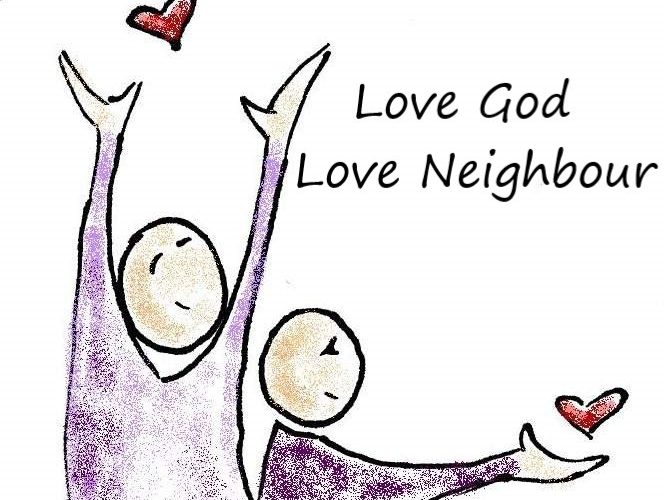THEMES: LOVE GOD, LOVE NEIGHBOUR
THOUGHT FOR THE WEEK
Following Christ means, among other things, becoming like Christ in self-giving love. Like the scribe, we “are not far from the kingdom of God” if we know this—but we have not yet arrived unless we do it, too. Love is perhaps the most difficult commandment: impossible to do without God’s enabling grace.
This week the focus is on the Great Commandment. We know Jesus’ words so well: “‘And you must love the LORD your God with all your heart, all your soul, all your mind, and all your strength.’ The second is equally important: ‘Love your neighbour as yourself.’ No other commandment is greater than these.” But, sadly, in spite of the clarity of these words, in spite of Jesus’ claim that the whole of the Scripture is summarized in these words, we still struggle to make this commandment the focus of our faith and life.
The Great Commandment is not two commandments, of course. The original text suggests that the “second” is “like” the first – that is, it is the same as the first. This means that this is really one commandment in two parts. Loving God and loving neighbour are inextricably linked. The love that Jesus speaks about here is not an emotion. It is not just saying the words “I love you.” For Jesus, loving another person means to honour her or his value as a human being and as valuable to God, and to express this in actions of service, respect and kindness. Love is always expressed in action. Of course, this is much harder than following the law. Legalism is attractive because it’s easy – you just tick each law off on a list. You’ve either done it or you haven’t. But love requires true engagement with the other person. It requires sensitivity, curiosity, interest, compassion, and a willingness to extend ourselves for the other person. Love is messy and unpredictable and costly. But love is also the only place where life can be found. This is what we will be exploring this week.
In Mark’s Gospel, the Great Commandment comes at the climax of what I call “the great debate.” The day after Jesus cleansed the temple, he and his disciples returned there. Here Jesus was challenged by the religious leaders on some of the most basic issues of human life. There was a debate around authority and power, and where the authority of Jesus originated. There was a debate around money and whether it was lawful to pay taxes to Caesar. And there was a debate around resurrection and marriage in the afterlife, and whose wife a poor bereaved woman would be. Power, money and human relationships – these are the three big issues we all face. For Jesus, the guiding principle in all of them is love – love for God and love for people. We may be tempted to feel that neighbours are only those who are close to us and who are like us.
Love is about honouring and respecting the other person, putting their needs first, and refusing deliberately to hurt them, even when it’s costly. This is the tough challenge of following Jesus. It is far easier to respond to anger with anger, to violence with violence, to hurt with hurt. But this only increases the cycle of hatred and misery. It is only when we commit to love above all that we can bring peace, compassion and justice into our world. This is not about doing “great acts” to change the world. It’s just about working to change our own hearts so that we live with kindness toward those around us – both friend and enemy.
How can you make your commitment to love a little stronger today?
Do:
To love others, you have to really see them. To see them, you have to give them your attention and welcome them into your space. This is why the simple act of greeting is so important and so powerful. Today, make a conscious effort to greet everyone you meet with warmth and kindness.
Pray:
In every situation, with every person, O God, may your love be my guide.

